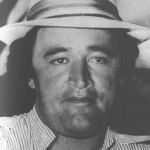Khun Sa, a figure shrouded in intrigue and infamy, rose to prominence as the enigmatic mastermind behind the Golden Triangle’s opium trade. His name became synonymous with power, wealth, and controversy, as he orchestrated a vast narcotics empire spanning Laos, Thailand, and Myanmar. With a staggering net worth, Khun Sa’s influence extended far beyond the confines of Southeast Asia, shaping the global landscape of the illicit drug trade.
Khun Sa Net Worth
Khun Sa net worth of $5 billion is primarily attributed to his leadership in the illicit drug trade within the Golden Triangle region. Operating during the turbulent periods of the 1970s, 80s, and 90s, Khun Sa commanded a drug trafficking network responsible for approximately 90% of the heroin supply in New York City. This dominance in the market enabled him to accumulate vast wealth through the distribution of illegal narcotics.
As the head of his drug trafficking operation, Khun Sa orchestrated a highly profitable enterprise that capitalized on the demand for heroin in international markets. The revenues generated from his illicit activities not only fueled addiction and crime but also significantly contributed to his substantial net worth.
The Golden Triangle, comprising parts of Myanmar, Laos, and Thailand, served as the primary production area for opium, the raw material for heroin. Khun Sa strategically positioned himself within this region, exploiting its geographical advantages and lax law enforcement to establish a formidable drug empire.
Despite concerted efforts by law enforcement agencies and governments to dismantle his operation, Khun Sa’s network remained resilient, adapting to changing circumstances and maintaining its dominance in the illicit drug trade. His ability to evade capture and sustain his criminal enterprise further bolstered his wealth.
Khun Sa net worth of $5 billion underscores the immense profits that can be derived from illicit activities, particularly in the lucrative narcotics trade. However, it also highlights the social and economic consequences associated with such criminal enterprises, including the proliferation of addiction, violence, and corruption.
Khun Sa Early Life and Family
Khun Sa, born Chang Chi-fu (Zhang Qifu), hailed from a mixed Chinese-Shan heritage. His father, a Chinese, passed away when he was merely three years old, and his mother succumbed two years later. Raised by his Shan grandfather, who was the village headman of Loi Maw, Khun Sa had deep roots in Shan State, where his Chinese lineage had resided since the 18th century.
Despite lacking formal education, Khun Sa underwent military training with Chinese Nationalist forces in Burma following Mao Zedong’s victory in 1949. Unlike his stepbrothers who attended missionary schools, Khun Sa’s education was limited to a brief period as a Buddhist novice. Illiterate for most of his life, his only formal instruction came during his youth.
In his early teens, Khun Sa received basic military training from the Kuomintang, a group that had fled into Burma from Yunnan following its defeat in the Chinese Civil War. At the age of sixteen, he formed his initial independent band of young men. As his following grew, he gradually distanced himself from the Kuomintang, establishing his autonomy with several hundred men. Throughout his life, Khun Sa exhibited a penchant for switching allegiances between the government and various rebel factions based on his strategic interests.
Khun Sa Height, Weight
Details regarding Khun Sa’s precise height and weight are not readily available in public records. However, his physical appearance was often described as imposing and commanding. Standing tall and possessing a robust build, Khun Sa exuded an aura of authority and power. While his exact measurements remain unknown, his stature was emblematic of his dominance within the criminal underworld.
Despite the absence of specific figures, Khun Sa’s formidable presence transcended mere physical attributes. His towering persona instilled both reverence and trepidation among those in his sphere of influence. Known as the “Opium King,” Khun Sa’s reputation for ruthlessness and cunning surpassed any numerical description of his height or weight.
In the realm of illicit drug trafficking, Khun Sa’s stature extended far beyond mere physical dimensions. His strategic acumen and organizational prowess elevated him to legendary status within the annals of criminal history. While his height and weight may have been unrecorded, his impact on the global narcotics trade was unmistakable.
Throughout his reign as a drug lord, Khun Sa’s imposing figure served as a symbol of authority and dominance. His larger-than-life persona commanded allegiance from loyal followers and instilled fear in adversaries. Despite the absence of concrete physical measurements, Khun Sa’s legacy as a towering figure in the criminal underworld endures as a testament to his unparalleled influence and power.
Khun Sa Relationship Status and Personal Life
Khun Sa, the notorious drug lord and leader of the Shan United Army, maintained an air of secrecy regarding his personal life. Despite his prominent role in the illicit drug trade and his influence in the Golden Triangle region, details about his romantic relationships and familial ties are scarce. Khun Sa intentionally obscured his personal affairs from public scrutiny and law enforcement agencies, contributing to the aura of mystery that surrounded him.
Throughout his reign as a drug lord, Khun Sa managed to keep his personal life hidden from the public eye. Speculation regarding his romantic involvements and familial connections circulated widely, but concrete information remained elusive. Khun Sa’s ability to conceal his personal affairs added to his mystique, making him a figure of intrigue and fascination.
Despite the lack of verifiable information, rumors persisted about Khun Sa’s personal life. Some suggested that he had multiple wives and children, while others speculated about his relationships with associates and allies in the criminal underworld. However, without substantiated evidence, these claims remained conjecture, contributing to the enigma surrounding Khun Sa.
Khun Sa’s deliberate efforts to maintain secrecy regarding his personal life underscored his shrewdness and cunning as a leader. By keeping his affairs private, he avoided unnecessary attention and scrutiny, allowing him to operate with relative impunity in the clandestine world of drug trafficking.
Khun Sa Career
Khun Sa’s illustrious career as the “Opium King” is a saga of power, wealth, and intrigue that captivated the world’s attention. From his humble beginnings to his ultimate reign as the preeminent drug lord of the Golden Triangle, his journey is a testament to the allure of illicit enterprise and the complexities of global geopolitics.
Early Career:
Khun Sa’s early career traces back to the clandestine world of opium cultivation and trafficking in the rugged hills of Southeast Asia. Operating in the lawless frontier regions of Laos, Thailand, and Myanmar, he swiftly ascended through the ranks, capitalizing on his cunning and ruthlessness to carve out a prominent position in the region’s burgeoning narcotics trade.
In the nascent stages of his career, Khun Sa demonstrated a keen understanding of the complexities of the illicit drug market, leveraging strategic alliances and exploiting weaknesses in law enforcement to expand his influence. His operations flourished amidst the chaos and instability of the region, with opium production and trafficking becoming increasingly lucrative enterprises.
As Khun Sa’s power grew, so too did his ambitions. He sought to consolidate control over key smuggling routes and distribution networks, employing tactics ranging from coercion and bribery to violence and intimidation. By the 1970s, he had established himself as a dominant figure in the Golden Triangle, a region notorious for its role in the global drug trade.
Khun Sa’s early career was characterized by audacity and resourcefulness, as he navigated the treacherous terrain of Southeast Asia’s criminal underworld. His ability to adapt to changing circumstances and capitalize on emerging opportunities allowed him to amass considerable wealth and influence, laying the foundation for his eventual rise to prominence as one of the world’s most notorious drug lords.
Expansion and Consolidation:
Khun Sa, driven by ambition and a relentless pursuit of wealth and influence, orchestrated a strategic expansion of his operations. By meticulously seizing opportunities and leveraging his resources, he extended his reach into critical supply routes and distribution channels. Employing a blend of coercion, bribery, and aggression, he forcefully subdued competing factions, establishing himself as the unchallenged authority within the Golden Triangle region. This calculated maneuvering enabled Khun Sa to tighten his grip on the lucrative drug trade, consolidating his power and reinforcing his position as the dominant figure in the illicit market.
Through a combination of shrewd tactics and ruthless efficiency, he effectively monopolized key aspects of the narcotics trade, dictating terms and exerting control over the entire supply chain. Khun Sa’s relentless pursuit of dominance transformed him into a formidable force within the criminal underworld, as his operations expanded and his influence grew. With a firm hold over critical logistical pathways and distribution networks, he solidified his status as the undisputed kingpin of the Golden Triangle, a position he maintained through a combination of strategic acumen and sheer force.
Legacy:
Khun Sa’s surrender to authorities in 1996 marked the end of his reign as one of the most notorious drug lords in history. Retiring to Rangoon, he left behind a legacy that continues to resonate within the world of organized crime. Despite his withdrawal from the criminal underworld, Khun Sa’s influence remains palpable, serving as a cautionary tale of the allure of wealth and the dangers of unbridled ambition.
His impact extends beyond his own criminal enterprise, as his name still evokes fear and fascination among those familiar with his exploits. The legend of Khun Sa serves as a reminder of the far-reaching consequences of illicit activities and the enduring allure of power. Though his reign may have ended, his legacy endures, casting a long shadow over the world of organized crime and leaving an indelible mark on history.












